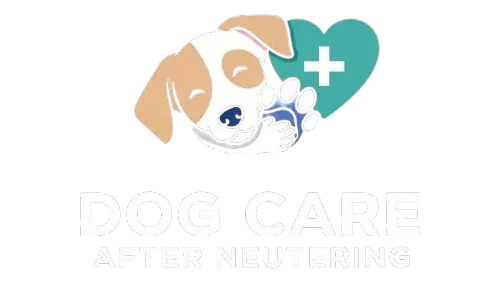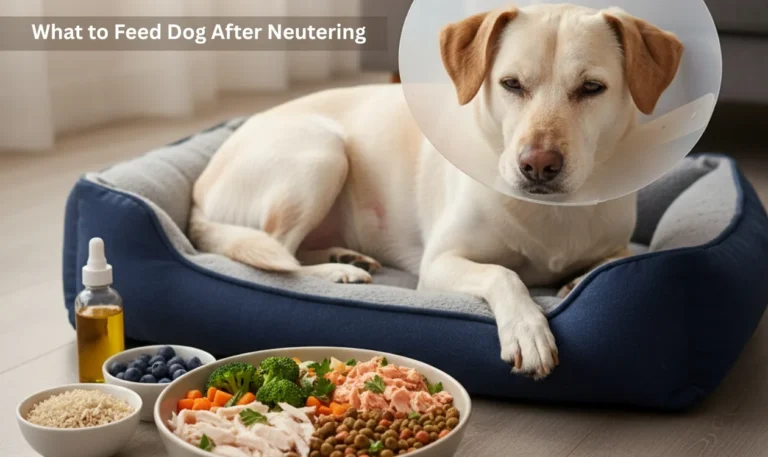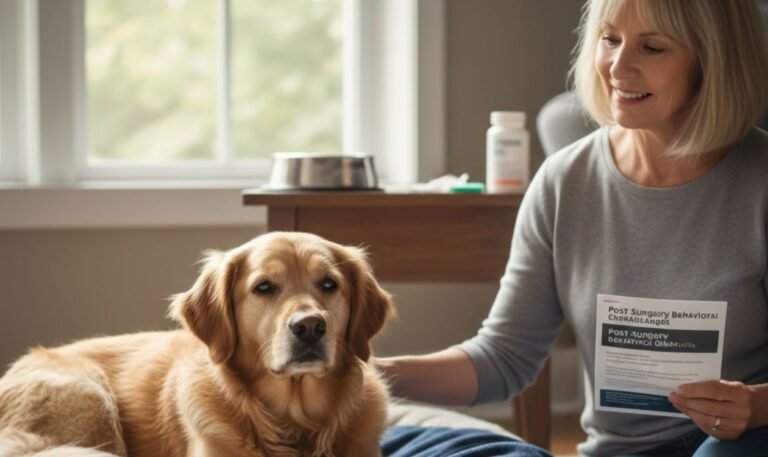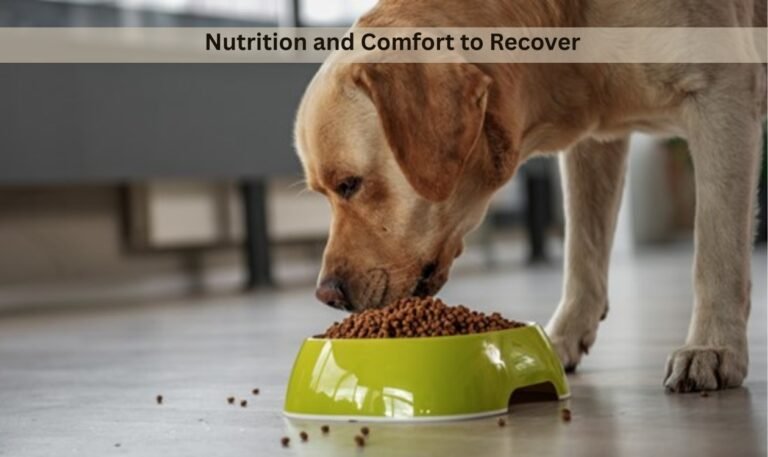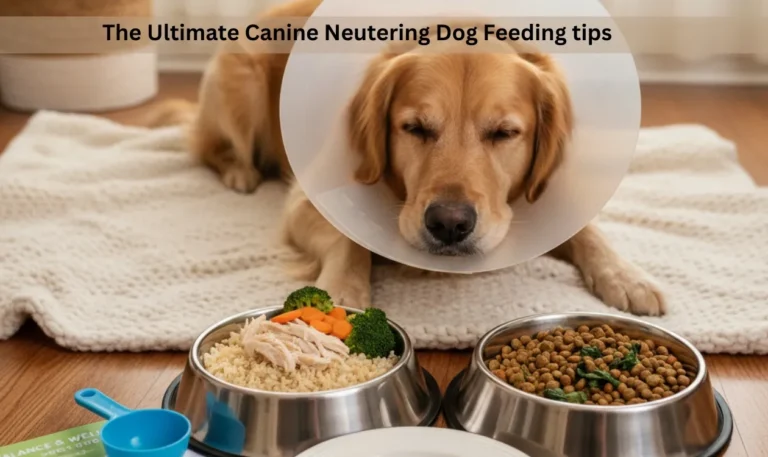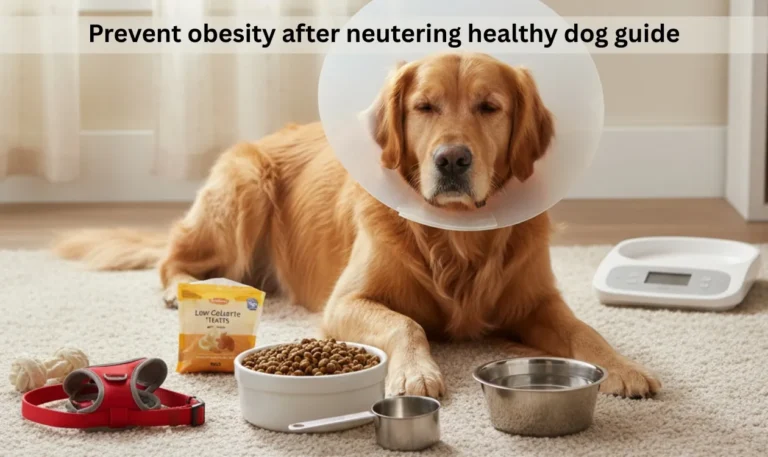How to help your dog get back on his feet after neutering
How to help your dog get back on his feet after neutering ensure gentle care, clean stitches, limited activity, and vet guidance for a smooth, fast recovery.
Neutering is a conscientious procedure that is healthy in the long term to your dog, however, as per the recovery, it may limit their energy at the moment. It is typical of dogs to look sleepy or lazy after an operation. It is natural that their body is still healed after the procedure and thus, they conserve energy. By carefully attending to your dog, you will soon have it back and in its active, happy self.
Being patient, feeding your dog and engaging in slow activity is the key to making your dog feel better again. Recovery should not be rushed as this may slow down healing or be uncomfortable. Rather, relax, drink water, and be psychologically comfortable. Knowing the post-surgery requirements of your dog care will enable you to adopt them through all the healing processes.
Create a Comfortable Recovery Space
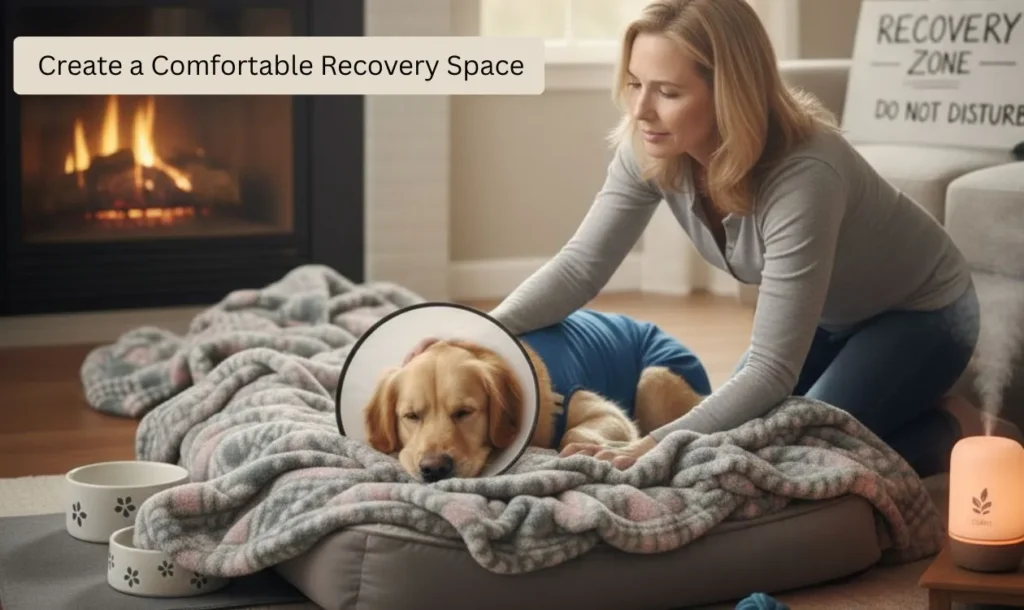
The initial action towards recovering your dog is to provide him/her with a relaxing environment in a calm place to sleep. They should not be exposed to the busiest sections of the home where they can be disturbed or even stressed. A comfortable bed, clean water and setting down of dim light can help in inducing comfort and sleep. Tissue repair and general healing cannot happen without rest.
Ensure that their environment remains quiet at least within a period of seven days after surgery. restriction of staircases, furniture, and other pets which can make them move too much. Calm environment reduces stress on the area of incision and this allows your dog to save energy. The less stressful they become, the quicker they will recover.
Gradually Reintroduce Exercise
It is important to begin to introduce gradual exercise to your dog again, once you have a clearance given to you by your vet. Start off with short walks to aid in rebuilding the muscle strength and circulation. The initial two weeks are to be spent without running, jumping, or rough playing. Light exercise will also stop stiffness and help to increase the energy of your dog slowly.
With time you can increase the duration of walks and other light play time. You should constantly check on the behaviore of your dog to detect any form of tiredness or pain. Did they pant so hard or appear weary; then cease. Gradual, progressive workouts are the best way to guarantee that a person recovers without getting wounded or overworked.
Focus on Proper Nutrition
A good diet is very essential in ensuring your dog is back on her feet after neutering. Provide them with good sources of proteins to aid in repairing tissues and immunity. Add vitamin and minerals of vegetables or supplements approved by veterinarians. Dogs do not need to be fed too much when on rest.
In case your dog has a low appetite, you can reheat his food to make it more tasty. Make sure that they consume a lot of fresh water during the day. Adequate hydration also aids in the elimination of Anaesthesia residues and makes their body active. Post-surgery vitality is based on nutrition.
Observations of Abnormal Fatigue.
Short-term fatigue is healthy within a few days, but the chronic one might be a sign of complications. Follow up on your dog- watch them, in case they are weak, refuse to eat, or are not interested in anything even after more than a week call your vet. It may be an indication of infections or an effect of medication.
Look at their incision every day to see that it is not red, swollen or discharged. These symptoms would slow down the healing process and lead to low energy. With early diagnosis and early treatment by a veterinarian, you are guaranteed of safe recovery of your dog. Listening is a virtue that can prove useful in avoiding defeat.
Offer Emotional Support and Companionship
Post-operative confinement may cause unease and disorientation in dogs and may limit their movements and activities. Have good time within the vicinity of your pet and talk in low tones and give tender care. The serene look of you takes away their anxiety and alleviates stress related exhaustion. Emotional solace is important as much as bodily treatment in healing.
Do not admonish them when they appear dawdling or disinterested in games. Rather, occupy them with gentle theoretical activity such as puzzle games or toys. Even using small acts of affection, you can bond with your dog and encourage it to heal quicker. Naturally, love and patience make healing fast.
Follow a Regular Schedule.
An exercise schedule makes your dog get back to the normal energy level more effectively. Feed, walk, and rest them at daily the same time. Regularity provides your pet with some form of security which helps them to control their metabolism and mood. Stability contributes to mental and physical balance in the period post surgery.
Do not make any abrupt environmental or dietary changes at the healing stage. Slow elimination of the old practices helps to lower stress and create stability. Routine based recovery will avoid anxiety and assistance to your dog in regaining confidence. Post neutering stability is important in restoration of complete vitality.
FAQs: How to help your dog get back
Final Thoughts
To restore the energy of your dog, time and love, as well as care are needed after neutering. With the help of nutrition, rest, and low-intensity activity, you will facilitate physical and emotional recovery. Take the advice of your vet and allow your pet to heal himself/herself.
Every little action, a stroll, a healthy meal or even a simple pat will bring your dog to a complete recovery. As you work on them faithfully, your faithful friend will soon become himself again, full of life and cheerfulness.
